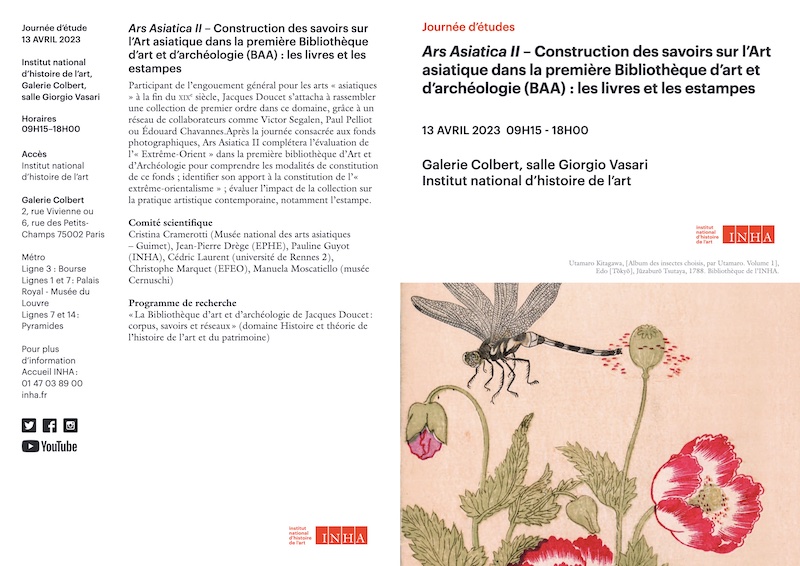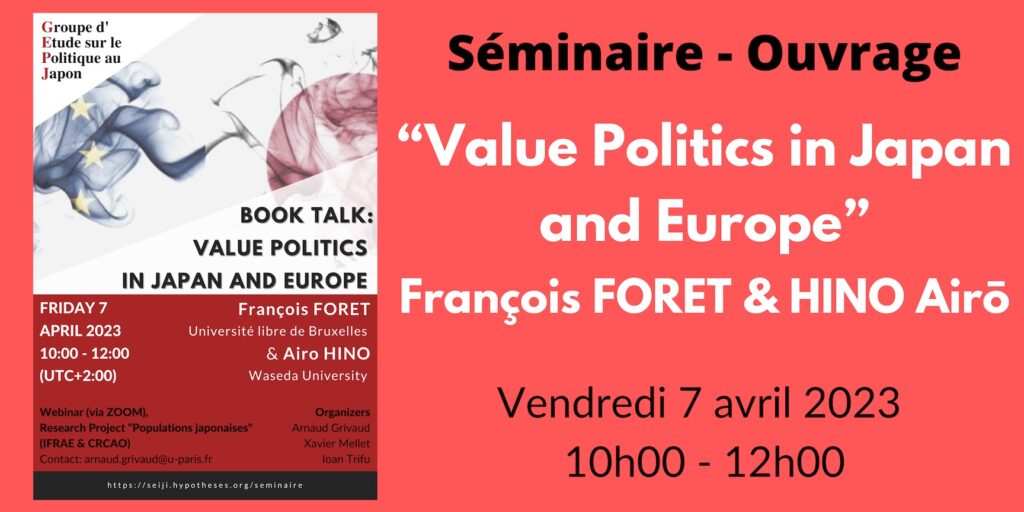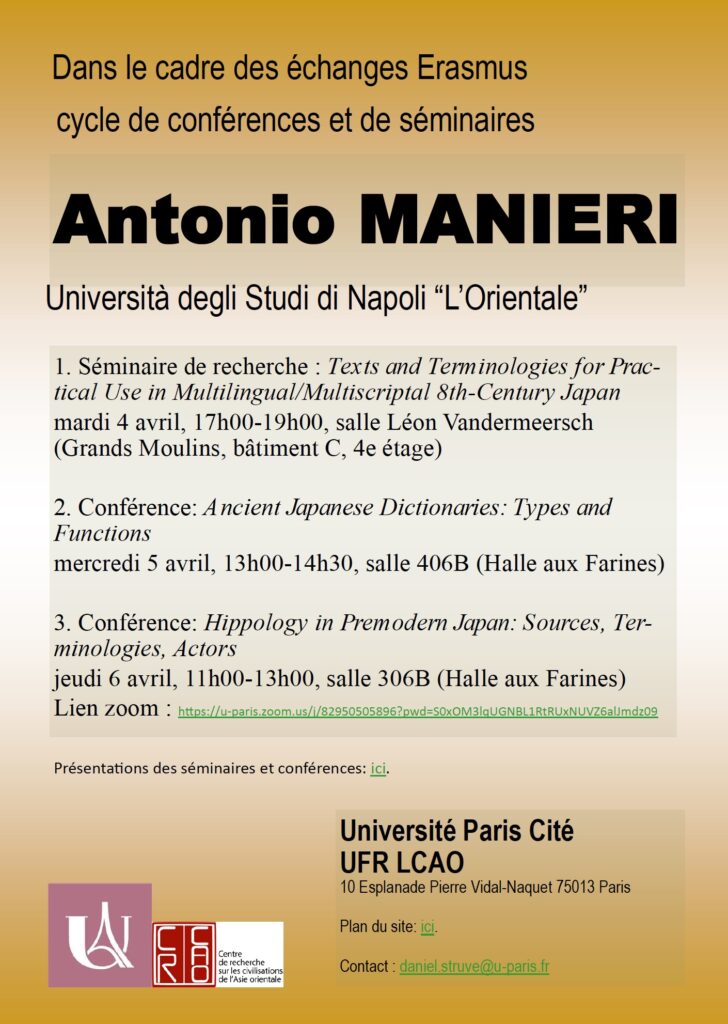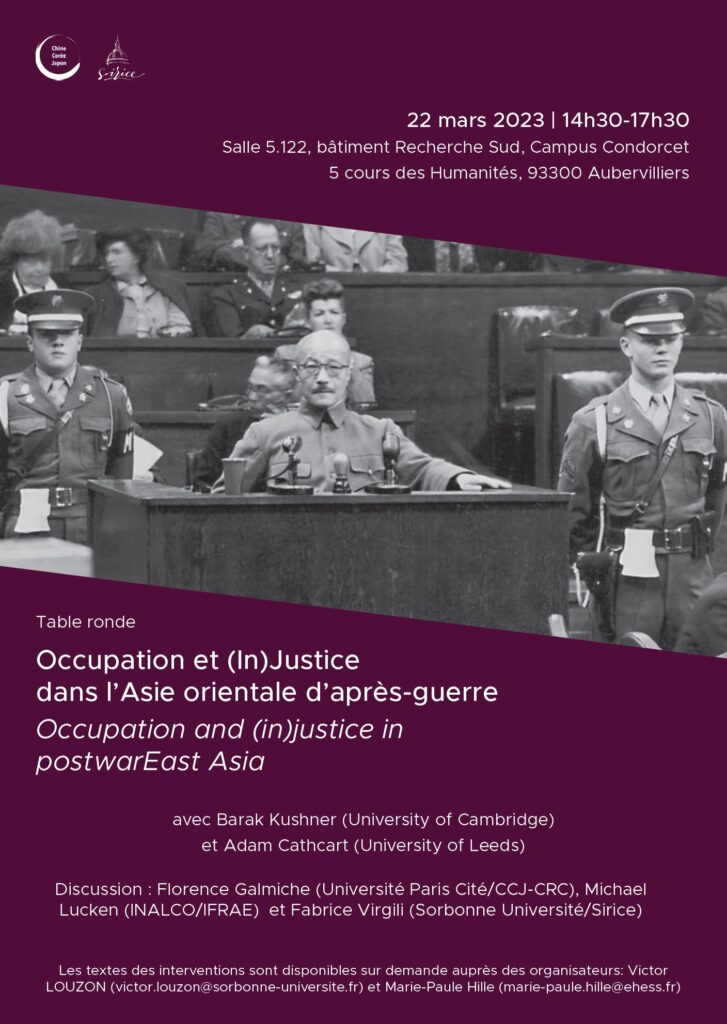M. Antonio MANIERI, de l’Orientale de Naples donnera à l’UFR LCAO la série de conférences suivante dans le cadre d’un échange Erasmus :
1. SÉMINAIRE DE RECHERCHE : Texts and Terminologies for Practical Use in Multilingual/Multiscriptal 8th-Century Japan
mardi 4 avril, 17h00-19h00, salle Léon Vandermeersch (Grands Moulins, bâtiment C, 4e étage)
Résumé
« In the research seminar, I will focus on certain 8th-century practical and bureaucratic texts in Sinitic inscribed on wooden tablets (mokkan) and paper documents (Shōsōin monjo) which contain specialized technical terms in vernacular Japanese. Although the terms have their Sinitic equivalents, the compilers of documents have shown some resistance to using them, possibly due to the oral and performative character of technical knowledge. Additionally, I will show how these terminologies are also included in some lost dictionaries that have survived fragmentarily in indirect tradition, such as the Yōshi kangoshō 楊氏漢語抄 (Notes on Chinese Words by Master Yako, ca. 720). I will argue that these dictionaries seem particularly useful for the technical education of state clerks, whose cultural background may not necessarily have been connected with the skills and lexicon required in the office where they were appointed. »
2. CONFÉRENCE : Ancient Japanese Dictionaries: Types and Functions
mercredi 5 avril, 13h00-14h30, salle 406B (Halle aux Farines)
Résumé
« The lesson will present basic information about ancient Japanese dictionaries (kojisho 古辞書), their typologies, and the most important surviving examples (Shinsen jikyō 新撰字鏡, Wamyōruijushō 和名類聚抄, Iroha jiruishō 色葉字類抄, etc.). The goal is to show how a dictionary can be a subject of study and can have utility beyond simply being consulted for difficult words. »
3. CONFÉRENCE: Hippology in Premodern Japan: Sources, Terminologies, Actors
jeudi 6 avril, 11h00-13h00, salle 306B (Halle aux Farines)
Résumé
« This conference will present the evolution of the figure of the horse vet from a state official to a religious practitioner, or the passage in the field of “hippology” from public knowledge, which can be reconstructed through laws and encyclopedias (and dictionaries), to the secret tradition that emerges, for example, during the Kamakura period with the Ba’i sōshi 馬医草子 (Scroll on Equine Medicine, 1267). Furthermore, I will tangentially touch upon the very early Edo period by presenting an illustrated scroll titled Bamōdōizu 馬毛同異図 (Types of Horse Coats, 1641), which is preserved at the Stibbert Museum in Florence and belongs to a series of scrolls on the colors of horse coats showing some continuity with the lexicon in use since the Nara period. »
Lien zoom : https://u-paris.zoom.us/j/82950505896?pwd=S0xOM3lqUGNBL1RtRUxNUVZ6alJmdz09




